- Home
- Edith Wharton
The Buccaneers Page 9
The Buccaneers Read online
Page 9
Yes—there was, as Jacky March had reason to know. Her own charm had been subtler and more discreet, and in the end it had failed her, but the knowledge that she had possessed it gave her a feeling of affinity with this new band of marauders, social aliens though they were: the wild gypsy who had captured Dick Marable, and her young friends who, two years later, had come out to look over the ground, and do their own capturing.
Miss March, who was always on her watch-tower, had already sighted and classified them: the serenely lovely Virginia St. George, whom Lady Brightlingsea had singled out for Lord Seadown, and her younger sister, Nan, negligible as yet compared with Virginia, but odd and interesting too, as her sharp little observer perceived. It was a novel kind of invasion, and Miss March was a-flutter with curiosity, and with an irrepressible sympathy. In Lady Brightlingsea’s company she had quite honestly blushed for the crude intruders; but, freed from the shadow of the peerage, she felt herself mysteriously akin to them, eager to know more of their plans, and even to play a secret part in the adventure.
Miss Testvalley was an old friend, and her arrival in London with a family of obscure but wealthy Americans had stirred the depths of Miss March’s social curiosity. She knew from experience that Miss Testvalley would never make imprudent revelations concerning her employers, much less betray their confidence; but her shrewd eye and keen ear must have harvested, in the transatlantic field, much that would be of burning interest to Miss March, and the latter was impatient to resume their talk. So far, she knew only that the St. George girls were beautiful, and their parents rich, yet that fashionable New York had rejected them. There was much more to learn, and there was also this strange outbreak of Lady Brightlingsea’s to hint at, if not reveal, to Miss Testvalley.
It was certainly a pity that their talk had been interrupted by Lady Brightlingsea; yet Miss March would not for the world have missed the latter’s visit and, above all, her unexpected allusion to her eldest son. For years Miss March had carried in her bosom the heavy weight of the Marable affairs, and this reference to Seadown had thrown her into such agitation that she sat down on the sofa and clasped her small wrinkled hands over her anxious heart. Seadown to marry an American—what news to communicate to Laura Testvalley!
Miss March rose and went quickly to her miniature writing-desk. She wrote a hurried note in her pretty flowing script, sealed it with silver-gray wax, and rang for the beruffled parlour-maid. Then she turned back into the room. It was crowded with velvet-covered tables and quaint corner-shelves all laden with photographs in heavy silver or morocco frames, surmounted by coronets, from the baronial to the ducal—one, even, royal (in a place of honour by itself, on the mantel). Most of these photographs were of young or middle-aged women, with long necks and calm imperious faces, crowned with diadems or nodded over by Court feathers. “Selina Brightlingsea,” “Blanche Tintagel, “Elfrida Marable”, they were signed in tall slanting hands. The handwriting was as uniform as the features, and nothing but the signatures seemed to differentiate these carven images. But in a corner by itself (pushed behind a lamp at Lady Brightlingsea’s arrival) was one, “To Jacky from her friend Idina Churt,” which Miss March now drew forth and studied with a furtive interest. What chance had an untaught transatlantic beauty against this reprehensible creature, with her tilted nose and impertinent dark fringe? Yet, after studying the portrait for a while, Miss March, as she set it down, simply murmured: “Poor Idina.”
IX.
Mrs. St. George had been bitterly disappointed in her attempt to launch her daughters in New York. Scandalized though she was by Virginia’s joining in the wretched practical joke played on the Assembly patronesses by Lord Richard Marable and his future brother-in-law, she could not think that such a prank would have lasting consequences. The difficulty, she believed, lay with Colonel St. George. He was too free-and-easy, too much disposed to behave as if Fifth Avenue and Wall Street were one. As a social figure no one took him seriously (except certain women she could have named, had it not demeaned her even to think of them), and by taking up with the Clossons, and forcing her to associate publicly with that divorced foreigner, he had deprived her girls of all chance of social recognition. Miss Testvalley had seen it from the first. She too was terribly upset about the ball; but she did not share Mrs. St. George’s view that Virginia and Nan, by acting as bridesmaids to Conchita Closson, had increased the mischief. At the wedding their beauty had been much remarked; and, as Miss Testvalley pointed out, Conchita had married into one of the greatest English families, and if ever the girls wanted to do a London season, knowing the Brightlingseas would certainly be a great help.
“A London season?” Mrs. St. George gasped, in a tone implying that her burdens and bewilderments were heavy enough already.
Miss Testvalley laughed. “Why not? It might be much easier than New York; you ought to try,” that intrepid woman declared.
Mrs. St. George, in her bewilderment, repeated this to her eldest daughter; and Virginia, who was a thoughtful girl, turned the matter over in her mind. The New York experiment, though her mother regarded it as a failure, had not been without its compensations; especially the second winter, when Nan emerged from the school-room. There was no doubt that Nan supplemented her sister usefully; she could always think of something funny or original to say, whereas there were moments when Virginia had to rely on the length of her eyelashes and the lustre of her lips, and trust to them to plead for her. Certainly the two sisters made an irresistible pair. The Assembly ladies might ignore their existence, but the young men did not; and there were jolly little dinners and gay theatre-parties in plenty to console the exiled beauties. Still, it was bitter to be left out of all the most exclusive entertainments, to have not a single invitation to Newport, to be unbidden to the Opera on the fashionable nights. With Mrs. St. George it rankled more than with her daughters. With the approach of the second summer she had thought of hiring a house at Newport; but she simply didn’t dare—and it was then that Miss Testvalley made her bold suggestion.
“But I’ve never been to England. I wouldn’t know how to get to know people. And I couldn’t face a strange country all alone.”
“You’d soon make friends, you know. It’s easier sometimes in foreign countries.”
Virginia here joined in. “Why shouldn’t we try, Mother? I’m sure Conchita’d be glad to get us invitations. She’s awfully good-natured.”
“Your father would think we’d gone crazy.”
Perhaps Mrs. St. George hoped he would; it was always an added cause for anxiety when her husband approved of holiday plans in which he was not to share. And that summer she knew he intended to see the Cup Races off Newport, with a vulgar drinking crowd, Elmsworth and Closson among them, who had joined him in chartering a steam-yacht for the occasion.
Colonel St. George’s business association with Mr. Closson had turned out to be an exceptionally fruitful one, and he had not failed to remind his wife that its pecuniary results had already justified him in asking her to be kind to Mrs. Closson. “If you hadn’t, how would I have paid for this European trip, I’d like to know, and all the finery for the girls’ London season?” he had playfully reminded her, as he pressed the steamer-tickets and a letter of credit into her reluctant hand.
Mrs. St. George knew then that the time for further argument was over. The letter of credit, a vaguely understood instrument which she handled as though it were an explosive, proved that his decision was irrevocable. The pact with Mr. Closson had paid for the projected European tour, and would also, Mrs. St. George bitterly reflected, help to pay for the charter of the steam-yacht, and the champagne orgies on board, with ladies in pink bonnets. All this was final, unchangeable, and she could only exhale her anguish to her daughters and their governess.
“Now your father’s rich, his first idea is to get rid of us, and have a good time by himself.”
Nan flushed up, longing to find words in defence of the Colonel; and Virginia spoke for her. “How silly, M
other! Father feels it’s only fair to give us a chance in London. You know perfectly well that if we get on there we’ll be invited everywhere when we get back to New York. That’s why Father wants us to go.”
“But I simply couldn’t go to England all alone with you girls,” Mrs. St. George despairingly repeated.
“But we won’t be alone. Of course Miss Testvalley’ll come too!” Nan interrupted.
“Take care, Nan! If I do, it will be to try to get you on with your Italian,” said the governess. But they were all aware that by this time she was less necessary to her pupils than to their mother.
X.
In the long summer twilight a father and son were pacing the terrace of an old house called Honourslove, on the edge of the Cotswolds. The irregular silver-gray building, when approached from the village by a drive winding under ancient beech-trees, seemed, like so many old dwellings in England, to lie almost in a hollow, screened to the north by hanging woods, and surveying from its many windows only its own lawns and trees; but the terrace on the other front overlooked an immensity of hill and vale, with huddled village roofs and floating spires. Now, in the twilight, though the sky curved above so clear and luminous, everything below was blurred, and the spires were hardly distinguishable from the tree-trunks; but to the two men strolling up and down before the house long familiarity made every fold of the landscape visible.
The Cotswolds were in the blood of the Thwartes, and their rule at Honourslove reached back so far that the present baronet, Sir Helmsley Thwarte, had persuaded himself that only by accident (or treachery—he was given to suspecting treachery) had their title to the estate dropped out of Domesday.
His only son, Guy, was not so sure; but, as Sir Helmsley said, the young respect nothing and believe in nothing, least of all in the validity of tradition. Guy did, however, believe in Honourslove, the beautiful old place which had come to be the first and last article of the family creed. Tradition, as embodied in the ancient walls and the ancient trees of Honourslove, seemed to him as priceless a quality as it did to Sir Helmsley; and, indeed, he sometimes said to himself that if ever he succeeded to the baronetcy he would be a safer and more vigilant guardian than his father, who loved the place and yet had so often betrayed it.
“I’d have shot myself rather than sell the Titian,” Guy used to think in moments of bitterness. “What’s the Holbein, by comparison? But then my father’s sure to outlive me—so what’s the odds?”
As they moved side by side that summer evening, it would have been hard for a looker-on to decide which had the greater chance of longevity: the heavy vigorous man approaching the sixties, a little flushed after his dinner and his bottle of Burgundy, but obliged to curb his quick stride to match his son’s more leisurely gait; or the son, tall and lean, and full of the balanced energy of the hard rider and quick thinker.
“You don’t adapt yourself to the scene, sir. It’s an insult to Honourslove to treat the terrace as if it were the platform at Euston, and you were racing for your train.”
Sir Helmsley was secretly proud of his own activity, and nothing pleased him better than his son’s disrespectful banter on his over-youthfulness. He slackened his pace with a gruff laugh.
“I suppose you young fellows expect the gray-beards to drag their gouty feet and lean on staves, as they do in Oedipe-roi at the Français.”
“Well, sir, as your beard’s bright auburn, that strikes me as irrelevant.” Guy knew this would not be unwelcome either; but a moment later he wondered if he had not overshot the mark. His father stopped short and faced him. “Bright auburn, indeed? Look here, my dear fellow, what is there behind this indecent flattery?” His voice hardened. “Not another bill to be met—eh?”
Guy gave a short laugh. He had wanted something, and had perhaps resorted to flattery in the hope of getting it; but his admiration for his brilliant and impetuous parent, even when not disinterested, was sincere.
“A bill—?” He laughed again. That would have been easier—though it was never easy to confess a lapse to Sir Helmsley. Guy had never learned to take his father’s tropical fits of rage without wincing. But to make him angry about money would have been less dangerous; and, at any rate, the young man was familiar with the result. It always left him seared, but still upright; whereas ...
“Well?”
“Nothing, sir.”
The father gave one of his angry “foreign” shrugs (reminiscent of far-off Bohemian days in the Quartier Latin), and the two men walked on in silence.
There were moments during their talks—and this was one —when the young man felt that, if each could have read the other’s secret mind, they would have found little to unite them except a joint love of their house and the land it stood on. But that love was so strong, and went so deep, that it sometimes seemed to embrace all the divergences. Would it now, Guy wondered? “How the devil shall I tell him?” he thought.
The two had paused, and stood looking out over the lower terraces to the indistinct blue reaches beyond. Lights were beginning to prick the dusk, and every roof which they revealed had a name and a meaning to Guy Thwarte. Red Farm, where the famous hazel copse was, Ausprey with its decaying Norman church, Little Ausprey with the old heronry at the Hall, Odcote, Sudcote, Lowdon, the ancient borough with its market-cross and its rich minster—all were thick with webs of memory for the youth whose people had so long been rooted in their soil. And those frail innumerable webs tightened about him like chains at the thought that in a few weeks he was to say goodbye to it all, probably for many months.
After preparing for a diplomatic career, and going through a first stage at the Foreign Office, and a secretaryship in Brazil, Guy Thwarte had suddenly decided that he was not made for diplomacy, and, braving his father’s wrath at this unaccountable defection, had settled down to a period of hard drudgery with an eminent firm of civil engineers who specialized in railway building. Though he had a natural bent for the work, he would probably never have chosen it had he not hoped it would be a quick way to wealth. The firm employing him had big contracts out for building railways in Far Eastern and South American lands, and Guy’s experience in Brazil had shown him that in those regions there were fortunes to be made by energetic men with a practical knowledge of the conditions. He preferred making a fortune to marrying one, and it was clear that sooner or later a great deal of money would be needed to save Honourslove and keep it going. Sir Helmsley’s financial ventures had been even costlier than his other follies, and the great Titian which was the glory of the house had been sold to cover the loss of part of the fortune which Guy had inherited from his mother, and which, during his minority, had been in Sir Helmsley’s imprudent hands. The subject was one never touched upon between father and son, but it had imperceptibly altered their relations, though not the tie of affection between them.
The truth was that the son’s case was hardly less perplexing than the father’s. Contradictory impulses strove in both. Each had the same love for the ancient habitation of their race, which enchanted but could not satisfy them, each was anxious to play the part fate had allotted to him, and each was dimly conscious of an inability to remain confined in it, and painfully aware that their secret problems would have been unintelligible to most men of their own class and kind. Sir Helmsley had been a grievous disappointment to the county, and it was expected that Guy should make up for his father’s short-comings by conforming to the expected standards, should be a hard rider, a good shot, a conscientious landlord and magistrate, and should in due time (and as soon as possible) marry a wife whose settlement would save Honourslove from the consequences of Sir Helmsley’s follies.
The county was not conscious of anything incomprehensible about Guy. Sir Helmsley had dabbled dangerously in forbidden things; but Guy had a decent reputation about women, and it was incredible that a man so tall and well set up, and such a brilliant point-to-point rider, should mess about with poetry or painting. Guy knew what was expected of him, and secretly agreed with h
is observers that the path they would have him follow was the right one for a man in his situation. But since Honourslove had to be saved, he would rather try to save it by his own labour than with a rich woman’s money.
Guy’s stage of drudgery as an engineer was now over, and he had been chosen to accompany one of the members of the firm on a big railway-building expedition in South America. His knowledge of the country, and the fact that his diplomatic training had included the mastering of two or three foreign languages, qualified him for the job, which promised to be lucrative as well as adventurous and might, he hoped, lead to big things. Sir Helmsley accused him of undergoing the work only for the sake of adventure; but, aggrieved though he was by his son’s decision, he respected him for sticking to it. “I’ve been only a brilliant failure myself,” he had grumbled at the end of their discussion; and Guy had laughed back: “Then I’ll try to be a dingy success.”
The memory of this talk passed through the young man’s mind; and with it the new impulse which, for the last week, had never been long out of his thoughts, and now threatened to absorb them. Struggle as he would, there it was, fighting in him for control. “As if my father would ever listen to reason!” But was this reason? He leaned on the balustrade, and let his mind wander over the rich darkness of the countryside.
Though he was not yet thirty, his life had been full of dramatic disturbances; indeed, to be the only son of Sir Helmsley Thwarte was in itself a potential drama. Sir Helmsley had been born with the passionate desire to be an accomplished example of his class, the ideal English squire; but a contrary streak in his nature was perpetually driving him toward art and poetry and travel, odd intimacies with a group of painters and decorators of socialistic tendencies, reckless dalliance with ladies, and a loud contempt for the mental inferiority of his county neighbours. Against these tendencies he waged a spasmodic and unavailing war, accusing and excusing himself in the same breath, and expecting his son to justify his vagaries, and to rescue him from their results. During Lady Thwarte’s life the task had been less difficult; she had always, as Guy now understood, kept a sort of cold power over her husband. To Guy himself she remained an enigma; the boy had never found a crack through which to penetrate beyond the porcelain-like surface of her face and mind. But while she lived things had gone more smoothly at Honourslove. Her husband’s oddest experiments had been tried away from home, and had never lasted long; her presence, her power, her clear conception of what the master of Honourslove ought to be, always drew him back to her and to conformity.

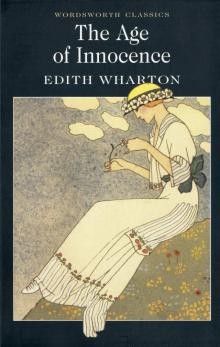 The Age of Innocence
The Age of Innocence The Reef
The Reef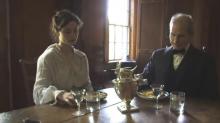 Summer
Summer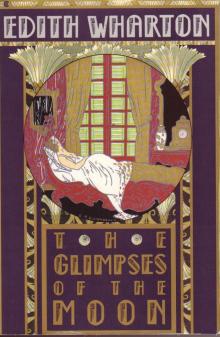 The Glimpses of the Moon
The Glimpses of the Moon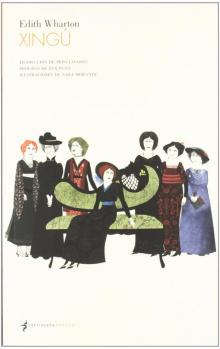 Xingu
Xingu The Fruit of the Tree
The Fruit of the Tree Fast and Loose
Fast and Loose Artemis to Actaeon and Other Verse
Artemis to Actaeon and Other Verse The Line of Least Resistance
The Line of Least Resistance The Lamp of Psyche
The Lamp of Psyche The Reckoning
The Reckoning Afterward
Afterward The New York Stories of Edith Wharton
The New York Stories of Edith Wharton The 2014 Halloween Horrors Megapack
The 2014 Halloween Horrors Megapack 'Copy': A Dialogue
'Copy': A Dialogue The Recovery
The Recovery The Fulness of Life
The Fulness of Life Early Short Stories Vol. 1
Early Short Stories Vol. 1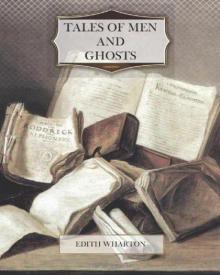 Tales of Men and Ghosts
Tales of Men and Ghosts The House of the Dead Hand
The House of the Dead Hand That Good May Come
That Good May Come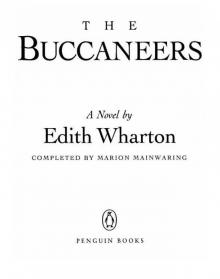 The Buccaneers
The Buccaneers Other Times, Other Manners
Other Times, Other Manners The Hermit and the Wild Woman
The Hermit and the Wild Woman Kerfol
Kerfol The Duchess at Prayer
The Duchess at Prayer Bunner Sisters
Bunner Sisters The Choice
The Choice Madame De Treymes
Madame De Treymes Ethan Frome, Summer, Bunner Sisters
Ethan Frome, Summer, Bunner Sisters In Morocco
In Morocco The Valley of Decision
The Valley of Decision Age of Innocence (Barnes & Noble Classics Series)
Age of Innocence (Barnes & Noble Classics Series) The Angel at the Grave
The Angel at the Grave April Showers
April Showers Sanctuary
Sanctuary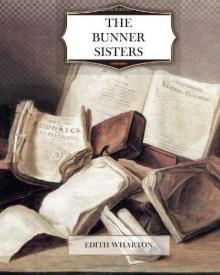 The Bunner Sisters
The Bunner Sisters Mrs. Manstey's View
Mrs. Manstey's View Writing a War Story
Writing a War Story The Custom of the Country
The Custom of the Country In Trust
In Trust The Triumph of the Night
The Triumph of the Night The Hermit and the Wild Woman, and Other Stories
The Hermit and the Wild Woman, and Other Stories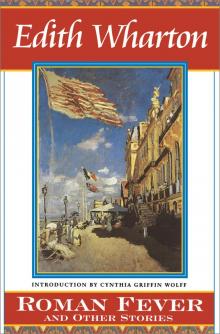 Roman Fever and Other Stories
Roman Fever and Other Stories The Mission of Jane
The Mission of Jane The Descent of Man and Other Stories
The Descent of Man and Other Stories Coming Home
Coming Home The Touchstone
The Touchstone Early Short Stories Vol. 2
Early Short Stories Vol. 2 Edith Wharton's Verse, 1879-1919, from various journals.
Edith Wharton's Verse, 1879-1919, from various journals.